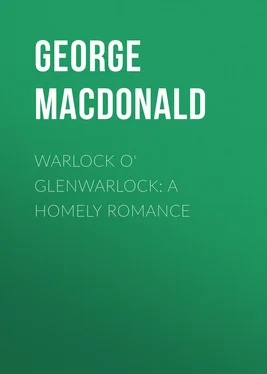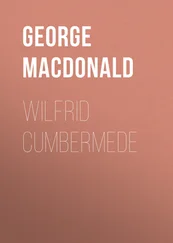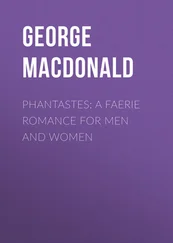George MacDonald - Warlock o' Glenwarlock - A Homely Romance
Здесь есть возможность читать онлайн «George MacDonald - Warlock o' Glenwarlock - A Homely Romance» — ознакомительный отрывок электронной книги совершенно бесплатно, а после прочтения отрывка купить полную версию. В некоторых случаях можно слушать аудио, скачать через торрент в формате fb2 и присутствует краткое содержание. Издательство: Иностранный паблик, Жанр: foreign_prose, foreign_religion, foreign_antique, на английском языке. Описание произведения, (предисловие) а так же отзывы посетителей доступны на портале библиотеки ЛибКат.
- Название:Warlock o' Glenwarlock: A Homely Romance
- Автор:
- Издательство:Иностранный паблик
- Жанр:
- Год:неизвестен
- ISBN:нет данных
- Рейтинг книги:3 / 5. Голосов: 1
-
Избранное:Добавить в избранное
- Отзывы:
-
Ваша оценка:
- 60
- 1
- 2
- 3
- 4
- 5
Warlock o' Glenwarlock: A Homely Romance: краткое содержание, описание и аннотация
Предлагаем к чтению аннотацию, описание, краткое содержание или предисловие (зависит от того, что написал сам автор книги «Warlock o' Glenwarlock: A Homely Romance»). Если вы не нашли необходимую информацию о книге — напишите в комментариях, мы постараемся отыскать её.
Warlock o' Glenwarlock: A Homely Romance — читать онлайн ознакомительный отрывок
Ниже представлен текст книги, разбитый по страницам. Система сохранения места последней прочитанной страницы, позволяет с удобством читать онлайн бесплатно книгу «Warlock o' Glenwarlock: A Homely Romance», без необходимости каждый раз заново искать на чём Вы остановились. Поставьте закладку, и сможете в любой момент перейти на страницу, на которой закончили чтение.
Интервал:
Закладка:
"Ye ken wha sits by the deein' sparrow?" said Mr. Simon, himself taking to the dialect. "Cosmo there was a better nor Grizzie, an' nearer to Linty a' the lang nicht. Things warna gangin' sae ill wi' her as ye thoucht. Life's an awfu' mystery, Cosmo, but it's jist the ae thing the maker o' 't can haud nearest til, for it's nearest til himsel' i' the mak o' 't.—Fowk may tell me," he went on, more now as if he were talking to himself than to the boy, "'at I sud content mysel' wi' what I see an' hear, an' lat alane sic eeseless speculations! wi' deein' men an' mears a' aboot me, hoo can I! They're onything but eeseless to me, for gien I had naething but what I see an' hear, gran' an' bonny as a heap o' 't is, I wad jist smore for want o' room."
"But what's the guid o' 't a', whan I'll never see her again?" sobbed Cosmo.
"Wha says sic a thing, laddie?"
"A' body," answered Cosmo, a good deal astonished at the question.
"Maister A' body has a heap o' the gawk in him yet, Cosmo," replied his master. "Infac' he's scarce mair nor an infant yet, though he wull speyk as gien the haill universe o' wisdom an' knowledge war open til 'im! There's no a word o' the kin' i' the haill Bible, nor i' the hert o' man—nor i' the hert o' the Maker, do I, i' the hert o' me, believe Cosmo, can YE believe 'at that wee bit foal o' an ass 'at carriet the maister o' 's, a' alang yon hill-road frae Bethany to Jerus'lem, cam to sic an ill hin 'er en' as to be forgotten by him he cairriet? No more can I believe that jist 'cause it carriet him it was ae hair better luiket efter nor ony ither bit assie foalt i' the lan' o' Isr'el."
"The disciples micht hae min't it til the cratur, an' liukit efter him for't," suggested Cosmo. His master looked pleased.
"They could but work the will o' him that made the ass," he said, "an does the best for a' thing an' a' body. Na, na, my son! gien I hae ony pooer to read the trowth o' things, the life 'at's gien is no taen; an' whatever come o' the cratur, the love it waukent in a human breist,'ill no more be lost than the objec' o' the same. That a thing can love an' be loved—an' that's yer bonnie mearie, Cosmo—is jist a' ane to savin' 'at it's immortal, for God is love, an' whatever partakes o' the essence o' God canna dee, but maun gang on livin' till it please him to say haud, an' that he'll never say."
By this time the face of the man was glowing like an altar on which had descended the fire of the highest heaven. His confidence entered the heart of Cosmo, and when the master ceased, he turned, with a sigh of gladness and relief, to his work, and wept no more. The possible entrance of Linty to an enlarged existence, widened the whole heaven of his conscious being; the well-spring of personal life within him seemed to rush forth in mighty volume; and through that grief and its consolation, the boy made a great stride towards manhood.
One day in the first week of his new schooling, Cosmo took occasion to mention Aggie's difficulty with her algebra, and her anxiety to find whether it was true that a girl could do as well as a boy. Mr. Simon was much interested, and with the instinct of the true hunter, whose business it is to hunt death for the sake of life, began to think whether here might not be another prepared to receive. He knew her father well, but had made no acquaintance with Agnes yet, who indeed was not a little afraid of him, for he looked as if he were always thinking about things nobody else knew of, although, in common with every woman who saw it, she did find his smile reassuring. No doubt the peculiar feeling of the neighbours concerning him had caused her involuntarily to associate with him the idea of something "no canny." Not the less, when she heard from Cosmo what sort of man his new master was, would she have given all she possessed to learn of him. And before long, she had her chance. Old Dorothy, Mr. Simon's servant and housekeeper was one day taken ill, and Cosmo mentioning the fact in Aggie's hearing, she ran, with a mere word to her mother, and not a moments' cogitation, to offer her assistance till she was better.
It turned out that "auld Dorty," as the neighbours called her, not without some hint askance at the quality of her temper, was not very seriously ailing, yet sufficiently so to accept a little help for the rougher work of the house; and while Aggie was on her knees washing the slabs of the passage that led through to the back door, the master, as she always called him now that Cosmo was his pupil, happened to come from his room, and saw and addressed her. She rose in haste, mechanically drying her hands in her apron.
"How's the algebra getting on, Agnes?" he said.
"Naething's gettin' on verra weel sin' maister Cosmo gaed frae the schuil, sir. I dinna seem to hae the hert for the learnin' 'at I had sae lang as he was there, sae far aheid o' me, but no a'thegither oot 'o my sicht, like.—It soon's a conceitit kin' o' a thing to say, but I'm no meanin' onything o' that natur', sir."
"I understand you very well, Agnes," returned the master. "Would you like to have some lessons with me? I don't say along with Cosmo; you would hardly be able for that at present, I fancy—but at such times as you could manage to come—odd times, when you were not wanted."
"There's naething upo' the airth, sir," said Aggie, "'at I wad like half sae weel. Thae jist a kin' o' a hoonger upo' me forun'erstan'in' things. Its frae bein' sae muckle wi' Maister Cosmo, I'm thinkin'—ever sin' he was a bairn, ye ken, sir; for bein' twa year aul'er nor him, I was a kin' o' a wee nursie til him; an' ever sin' syne we hae had nae secrets frae ane anither; an' ye ken what he's like—aye wantin' to win at the boddom o' things, an' that's infeckit me, sae 'at I canna rist whan I see onybody un'erstan'in' a thing, till I set aboot gettin' a grip o' 't mysel'."
"A very good infection to take, Agnes," replied the master, with a smile of thorough pleasure, "and one that will do more for you than the cow-pox. Come to me as often as you can—and as you like. I think I shall be able to tell you some things to make you happier."
"'Deed, sir. I'm in no want o' happiness! O' that I hae full mair nor I deserve; but I want a heap for a' that. I canna say what it is, for the hoonger is for what I haena."
"Another of God's children!" said the master to himself, "and full of the groanings of the spirit! The wilderness and the solitary place shall be glad for them."
He often quoted scripture as the people of the New Testament did—not much minding the original application of the words. Those that are filled with the spirit, have always taken liberties with the letter.
That very evening before she went home, they had a talk about algebra, and several other things. Agnes went no more to school, but almost every day to see the master, avoiding the hours when Cosmo would be there.
CHAPTER XII.
GRANNIE'S GHOST STORY
Things went on very quietly. The glorious days of harvest came and went, and left the fields bare for the wintry revelling of great blasts. The potatoes were all dug up, and again buried—deeper than before, in pits, with sheets of straw and blankets of earth to protect them from the biting of the frost. Their stalks and many weeds with them were burned, and their ashes scattered. Some of the land was ploughed, and some left till the spring. Before the autumn rains the stock of peats was brought from the hill, where they had been drying through the hot weather, and a splendid stack they made. Coal was carted from the nearest sea-port, though not in such quantity as the laird would have liked, for money was as scarce as ever, and that is to put its lack pretty strongly. Everything available for firewood was collected, and, if of any size, put under saw and axe, then stored in the house. Good preparation was thus made for the siege of the winter.
Читать дальшеИнтервал:
Закладка:
Похожие книги на «Warlock o' Glenwarlock: A Homely Romance»
Представляем Вашему вниманию похожие книги на «Warlock o' Glenwarlock: A Homely Romance» списком для выбора. Мы отобрали схожую по названию и смыслу литературу в надежде предоставить читателям больше вариантов отыскать новые, интересные, ещё непрочитанные произведения.
Обсуждение, отзывы о книге «Warlock o' Glenwarlock: A Homely Romance» и просто собственные мнения читателей. Оставьте ваши комментарии, напишите, что Вы думаете о произведении, его смысле или главных героях. Укажите что конкретно понравилось, а что нет, и почему Вы так считаете.












